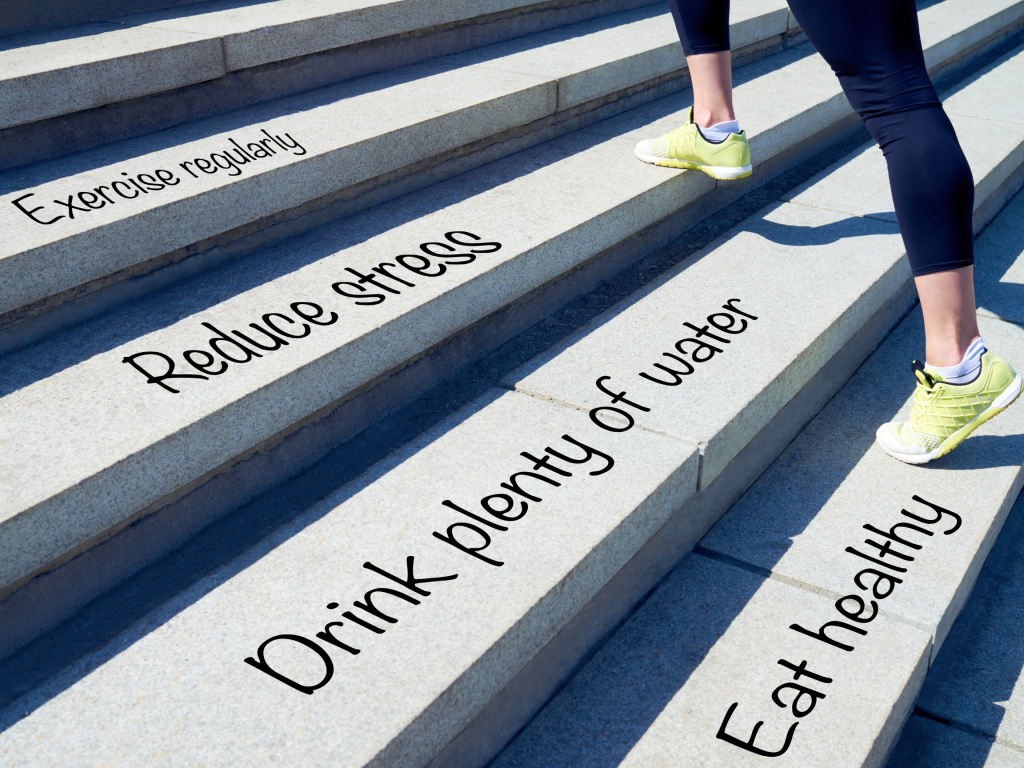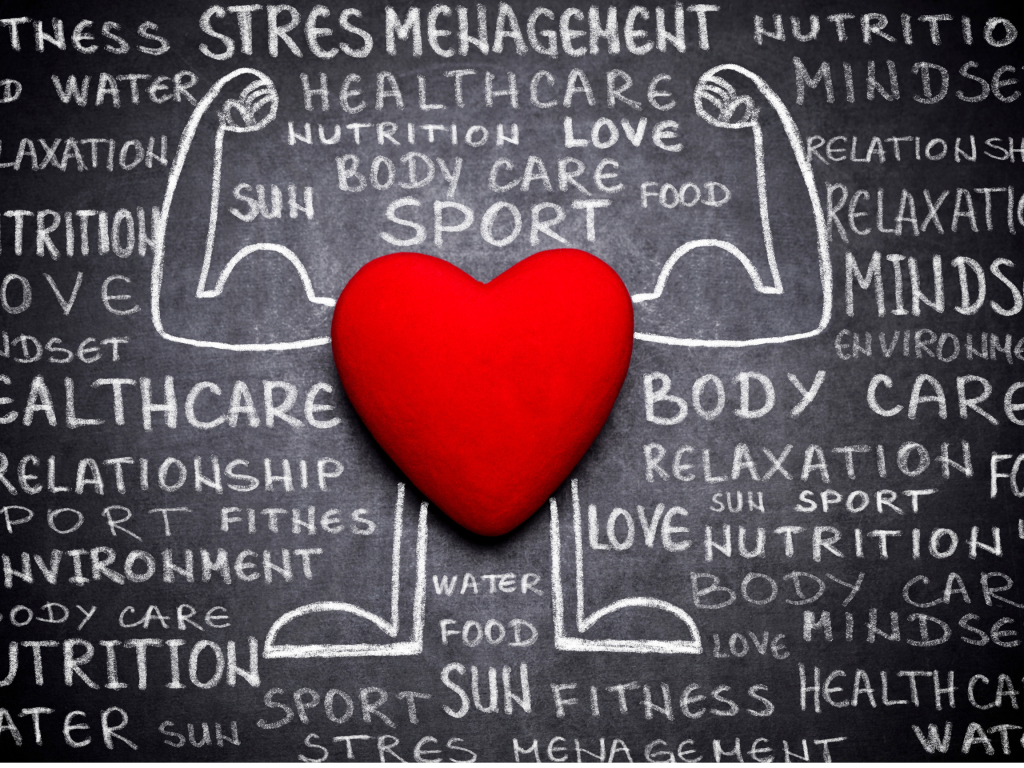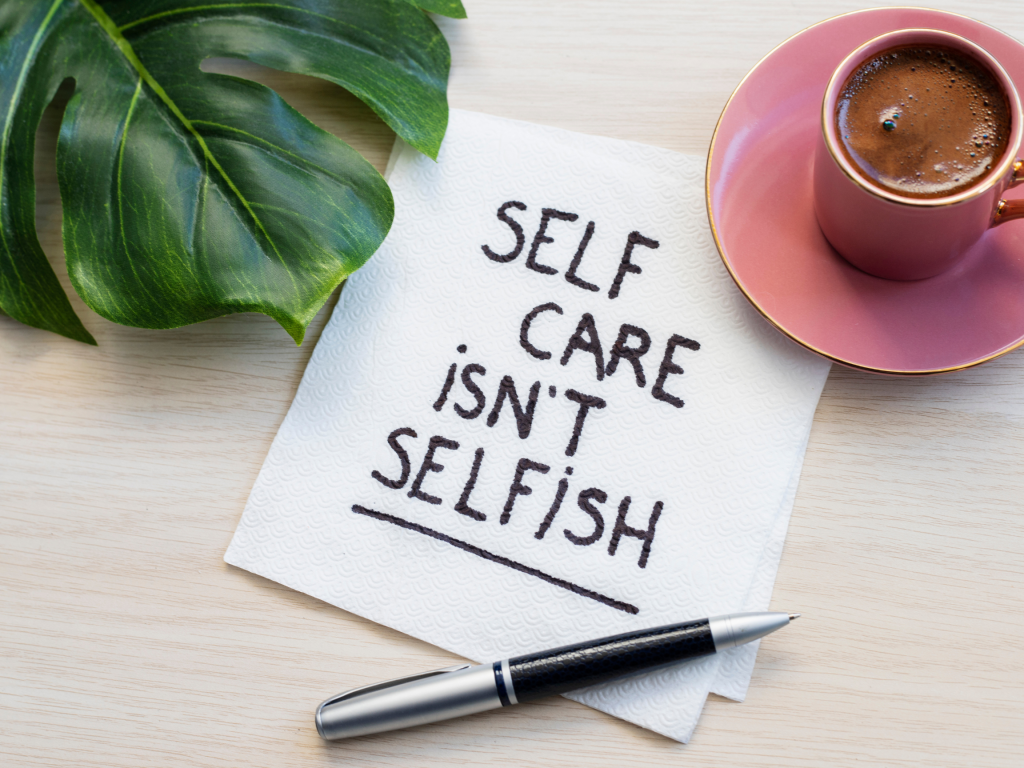Table of Contents
Key Takeaway
Embarking on a journey to live a healthy lifestyle is about embracing incremental changes that lead to lasting well-being. This guide offers essential tips for integrating balanced nutrition, regular physical activity, and mental self-care into your daily routine. By adopting these practical strategies, you’ll not only improve your physical health but also enhance your mental and emotional resilience. Start with small steps and smart choices to elevate your overall quality of life, making wellness an enjoyable and effortless part of your everyday experience.
Live a Healthy Lifestyle
In the fast-paced world we live in, maintaining a healthy lifestyle can sometimes feel like an uphill battle. The demands of work, family, and social obligations often leave us prioritizing convenience over health, and stress can become a constant, unwelcome companion. Yet, the benefits of adopting a healthier lifestyle are undeniable, impacting not just our physical well-being but our mental and emotional health as well.
The journey to health is not about drastic changes or unattainable goals; it’s about making smarter choices, one step at a time. This post isn’t just another list of health tips; it’s a guide to integrating wellness into your daily routine, effortlessly and enjoyably. Whether you’re looking to revamp your diet, incorporate more physical activity into your day, or simply find more time for self-care, we’ve compiled essential tips that are both practical and sustainable.
Embarking on the path to a healthier you doesn’t have to be daunting. With these foundational strategies, you can elevate your health, boost your energy, and find a balance that makes wellness not just a goal, but a way of life. So, let’s dive in and explore how you can live your best, healthiest life with these essential tips!

Live a Healthy Lifestyle: Nutrition
Understanding Nutrition
Nutrition is the foundation of a healthy lifestyle. It’s not just about weight management; it’s about fueling your body with the right types of food to optimize your energy levels, improve your mood, and prevent a myriad of health conditions. A balanced diet rich in fruits, vegetables, whole grains, lean proteins, and healthy fats provides the variety of nutrients your body needs to function at its best. Understanding the role of macronutrients (carbohydrates, proteins, and fats) and micronutrients (vitamins and minerals) is crucial for making informed decisions about what you eat.
Practical Eating Habits
Knowing what to eat is one thing, but incorporating those choices into your daily life is another. Start by planning your meals to avoid last-minute decisions that could lead to less healthy options. Keep your kitchen stocked with nutritious snacks like nuts, yogurt, and fresh fruit to curb hunger without resorting to junk food. When dining out, look for grilled, baked, or steamed dishes rather than those that are fried or smothered in heavy sauces. And remember, portion control is key – listen to your hunger cues and stop eating when you’re comfortably full, not stuffed.
Hydration
Water is essential for life. It lubricates your joints, protects your tissues, and helps remove waste from your body. Staying well-hydrated also aids in digestion, keeps your skin healthy, and can even boost your metabolism. Aim for at least 8 glasses of water a day, more if you’re active or live in a hot climate. And don’t forget that fruits and vegetables can also contribute to your daily water intake. If you find plain water unappealing, try infusing it with slices of fruits or herbs like mint or basil for a refreshing twist.
By focusing on these foundational aspects of nutrition, you’re setting yourself up for a lifetime of healthier eating habits that will sustain your energy levels, improve your health, and help you feel your best every day.
Live a Healthy Lifestyle: Physical Activity
Benefits of Regular Exercise
The merits of physical activity extend far beyond weight management. Regular exercise can significantly reduce the risk of chronic diseases such as heart disease, diabetes, and several types of cancer. It’s also a powerful stress reliever and mood booster, thanks to the endorphins released during activity, often referred to as a “runner’s high.” Moreover, incorporating strength training and cardiovascular exercises can improve muscle and bone health, which is crucial as we age. Lastly, being active increases energy levels and contributes to better sleep patterns, setting a positive domino effect on your overall health.
Finding the Right Exercise
The key to consistent physical activity is finding a form of exercise you enjoy. Cardiovascular activities like jogging, swimming, or cycling are excellent for heart health and endurance. Strength training, on the other hand, can be achieved through body-weight exercises, free weights, or resistance bands and is essential for maintaining muscle mass and bone density. Flexibility and balance can be improved with yoga or Pilates, which also offer mental relaxation benefits. If you prefer group settings, consider classes or sports leagues. For those who enjoy solitude, solo workouts or nature hikes might be the answer. The important thing is to keep it fun and varied to avoid burnout.
Overcoming Barriers
One of the most significant barriers to regular exercise is time. However, workouts don’t need to be lengthy to be effective; even short bursts of activity can add up over the day. Try integrating physical activity into your routine by biking to work, opting for the stairs, or doing a quick workout during lunch breaks. Motivation can ebb and flow, but setting realistic goals and tracking your progress can provide a sense of achievement. Remember, any movement is better than none, and the best workout is the one that happens consistently.
By embracing the physical activities you enjoy, acknowledging the profound benefits, and overcoming common barriers, you can make exercise a pleasurable and permanent part of your lifestyle.

Live a Healthy Lifestyle: Mental Well-being
Stress Management
In our always-on world, stress is a common denominator in the equation of life, but its management is essential for mental well-being and overall health. Chronic stress can lead to a host of health issues, including anxiety, depression, heart disease, and more. Incorporating stress management techniques such as mindfulness meditation, deep breathing exercises, or progressive muscle relaxation can be powerful tools to combat stress. Regular practice can help lower stress hormone levels, reduce blood pressure, and promote a sense of calm. Additionally, hobbies and activities that bring joy can also serve as effective stress relievers.
Sleep Importance
Sleep is the unsung hero of health. Adequate rest is vital for our bodies to repair themselves, consolidate memories, and process information. Poor sleep can lead to a weakened immune system, weight gain, and increased risk of chronic diseases. Adults should aim for 7-9 hours of quality sleep per night. Creating a sleep-conducive environment by keeping the bedroom dark, quiet, and cool can help, as can establishing a regular sleep schedule. Avoiding screens, caffeine, and heavy meals before bedtime can also promote better sleep. Remember, good sleep isn’t a luxury; it’s a pillar of health just as critical as diet and exercise.
Healthy Relationships and Social Connectivity
Humans are social creatures, and our relationships with others can have a profound impact on our mental health. Strong connections can provide emotional support, reduce stress, and enhance our sense of belonging and purpose. On the flip side, toxic relationships can take a toll on our mental well-being. It’s important to nurture supportive friendships and family ties and to seek out community groups or activities where connections can be formed. Additionally, setting boundaries is crucial; it’s okay to say no to demands on your time and energy that will cause stress.
By taking active steps to manage stress, prioritize sleep, and cultivate healthy relationships, you can significantly improve your mental well-being and, in turn, your quality of life.
Live a Healthy Lifestyle: Preventative Health Measures
Routine Health Screenings
Preventative healthcare is a proactive approach to well-being, aiming to detect potential health issues before they become serious problems. Routine health screenings, such as blood pressure checks, cholesterol levels, diabetes screenings, and cancer screenings, are essential for early detection and intervention. These should be scheduled according to the guidelines for your age group and risk factors. Regular dental and vision checks are also important and can detect issues that are not just limited to the eyes and teeth but can also be indicators of other health problems.
Vaccinations and Immunizations
Staying up to date with vaccinations is not just for children; it’s a lifelong necessity. Vaccines protect against diseases like the flu, pneumonia, shingles, and newer threats like COVID-19. Immunizations are one of the most effective ways to prevent disease spread and complications. Discuss with your healthcare provider which vaccines are recommended for you, based on your age, health status, and travel plans.
Healthy Habits
Incorporating small, healthy habits into your daily routine can also play a significant role in preventative health. This includes hand washing to prevent the spread of viruses and bacteria, using sunscreen to protect against skin cancer, avoiding tobacco, and limiting alcohol intake. Additionally, being mindful of changes in your body and reporting anything unusual to your doctor can help catch issues early.
Mental Health Check-Ins
Preventive measures also apply to mental health. Regular check-ins with yourself on your mental state are as important as physical health screenings. Being aware of and addressing early signs of stress, depression, or anxiety with a professional can prevent these issues from escalating. Taking advantage of mental health resources, such as counseling or therapy, can be beneficial for maintaining emotional resilience and well-being.
By engaging in these preventative health measures, you can take charge of your health, avoid or delay the onset of disease, and live your life to the fullest.

Live a Healthy Lifestyle: Lifelong Learning and Cognitive Health
Continuous Learning
Keeping the brain active and engaged is just as important as maintaining physical fitness. Lifelong learning can take many forms, from formal education to self-guided study. Engaging in activities that challenge your intellect, such as learning a new language, playing a musical instrument, or even puzzles and games, can improve cognitive function and may even delay the onset of dementia-related diseases. The goal is to stay curious and committed to learning new skills or deepening your knowledge in various areas.
Cognitive Exercises
Just as you would exercise your muscles, it’s crucial to exercise your brain. Cognitive exercises can enhance mental agility and memory. Activities such as reading, writing, and participating in discussions or debates keep the mind sharp. Memory training exercises, like remembering lists or playing memory games, can also be particularly effective in keeping your cognitive functions strong.
Diet and Cognitive Health
There is a strong connection between the food we eat and our brain health. Diets rich in omega-3 fatty acids, antioxidants, and vitamins, such as the Mediterranean diet, have been linked to lower risks of cognitive decline. Incorporating a variety of these brain-boosting foods into your diet can support cognitive health and protect against inflammation and neurodegeneration.
Social Engagement
Regular social interaction is not only important for emotional well-being but also for cognitive health. Engaging in social activities can improve mental functioning and slow cognitive decline in older adults. Participation in community groups, volunteer activities, or even informal gatherings with friends and family can provide mental stimulation and reduce feelings of isolation, which is particularly important as we age.
Mindfulness and Reflection
Practices such as mindfulness meditation, yoga, and tai chi not only reduce stress but also benefit cognitive health by improving concentration, attention, and the ability to multitask. Taking time for reflection, through practices like journaling or simply sitting quietly in contemplation, can also help maintain mental clarity and cognitive vitality.
By embracing a lifestyle that includes continuous learning, cognitive exercises, a brain-healthy diet, social engagement, and mindfulness, you can support your cognitive health well into the future.
In conclusion, in order to live a healthy lifestyle it is important to understand that it is a multi-faceted journey that requires a consistent and holistic approach. By embracing a diet rich in nutrients, committing to regular physical activity, ensuring adequate sleep, and engaging in preventative health measures, we can lay a strong foundation for long-term well-being. Incorporating lifelong learning and cognitive exercises contributes to mental sharpness, while balanced nutrition supports our bodily functions. Each section of this guide intertwines to form a comprehensive tapestry of health that, when followed, can lead to an enriched life full of vitality and longevity.
Remember, the path to a healthy lifestyle is not about perfection but about making better choices, one step at a time. It’s about finding balance, listening to your body, and adapting to changing circumstances and needs. With dedication and self-awareness, anyone can embark on this rewarding journey. Let these essential tips be your guide as you navigate the complexities of health and wellness, and may you find joy and fulfillment in the pursuit of a healthy, balanced life.
Live a Healthy Lifestyle: Additional Resources
To live a healthy lifestyle it involves several key habits. Focus on eating a balanced diet, staying physically active, and getting enough sleep. Incorporate regular exercise into your routine and prioritize self-care activities like meditation or hobbies that reduce stress. Remember to stay hydrated and seek support from friends or professionals when needed.
For those seeking to delve deeper into the journey of a healthy lifestyle, a wealth of resources is available to guide and support you. Websites such as the Centers for Disease Control and Prevention (CDC) and the World Health Organization (WHO) offer evidence-based guidelines and tips for maintaining overall health. For personalized advice, consider consulting with healthcare professionals like dietitians, personal trainers, and mental health counselors who can tailor recommendations to your unique needs. Local community centers often provide classes and groups focused on nutrition, exercise, and well-being.
Additionally, countless books, podcasts, and online communities are dedicated to topics ranging from mindful eating to effective workout routines. We encourage you to utilize these resources, reach out to professionals, and join supportive communities to keep you motivated. Take action today: choose one aspect of a healthy lifestyle that you wish to improve, find a resource that resonates with you, and take the first step towards a healthier you. Your journey to wellness is just a decision away—embrace it.
Also, check out the last post about tween health!
Join the Movement Toward Health
As we wrap up this comprehensive guide to living a healthier lifestyle, we turn to you, our readers, to bring this conversation to life. Health is a journey best traveled with support and camaraderie. Share this guide with someone you care about and discuss what steps you can take together.
Have these tips sparked a change in your daily routine? We want to hear about it! Leave a comment below with the healthy choices you’re making, the challenges you’re overcoming, and the victories, big or small, you’re celebrating. Let’s build a community where encouragement and real-life stories inspire each of us to keep striving for our best health.
Take Action:
- Comment: Which tip are you going to try first?
- Share: Know someone who could benefit from these tips? Send this post their way.
- Engage: Use the hashtag #HealthyLifestyleJourney on social media to share your progress and connect with others on the same path.
Your story could be the catalyst for someone else’s improvement. Let’s spread wellness together!

